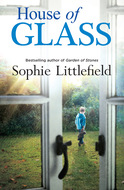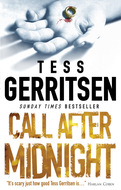Das Buch kann nicht als Datei heruntergeladen werden, kann aber in unserer App oder online auf der Website gelesen werden.
Buch lesen: "Don't You Cry"
Praise for Mary Kubica
‘Fans of Gone Girl will embrace this’ – Lisa Gardner
‘Grabs you from the moment it starts’
– Daily Mail
‘Gets right under your skin and leaves its mark.
A tremendous read’
– The Sun
‘Pulse pounding’
– Heather Gudenkauf
‘Sensational’
– Metro
‘Fantastic … I would recommend it to every crime fiction reader out there’
‘Memorable and riveting’
– Lovereading.co.uk
‘Stunning. Kubica is an author to watch’
– We Love This Book
‘A complex tale of deceit, jealousy, fear and love’
Don’t You Cry
Mary Kubica

Copyright

An imprint of HarperCollins Publishers Ltd
1 London Bridge Street
London SE1 9GF
First published in Great Britain by HQ in 2016
Copyright © Mary Kubica 2016
Mary Kubica asserts the moral right to be identified as the author of this work.
A catalogue record for this book is available from the British Library.
This novel is entirely a work of fiction. The names, characters and incidents portrayed in it are the work of the author’s imagination. Any resemblance to actual persons, living or dead, events or localities is entirely coincidental.
All rights reserved under International and Pan-American Copyright Conventions. By payment of the required fees, you have been granted the non-exclusive, non-transferable right to access and read the text of this e-book on-screen. No part of this text may be reproduced, transmitted, down-loaded, decompiled, reverse engineered, or stored in or introduced into any information storage and retrieval system, in any form or by any means, whether electronic or mechanical, now known or hereinafter invented, without the express written permission of HarperCollins.
Ebook Edition © June 2017 ISBN: 9781474048743
Version: 2018-07-20
MARY KUBICA holds a Bachelor of Arts degree from Miami University in Oxford, Ohio, in History and American Literature. She lives outside of Chicago with her husband and two children and enjoys photography, gardening and caring for the animals at a local shelter. Don’t You Cry is her third novel. Visit her website www.MaryKubica.com
For Pete
Contents
Cover
Praise for Mary Kubica
Title Page
Copyright
About the Author
Dedication
SUNDAY
Quinn
Alex
Alex
Quinn
Alex
Quinn
Alex
Quinn
Alex
Quinn
MONDAY
Alex
Quinn
Alex
Quinn
Alex
Quinn
Alex
Quinn
Alex
TUESDAY
Quinn
Alex
Quinn
Alex
Quinn
WEDNESDAY
Alex
Quinn
Alex
Quinn
Alex
Quinn
Alex
Quinn
THURSDAY
Alex
Quinn
Alex
Quinn
Alex
Quinn
Alex
Alex
Quinn
Alex
Quinn
Extract
Endpage
About the Publisher
SUNDAY
Quinn
In hindsight, I should have known right away that something wasn’t quite right. The jarring noise in the middle of the night, the open window, the empty bed. Later, I blamed a whole slew of things for my nonchalance, everything from a headache to fatigue, down to arrant stupidity.
But still.
I should have known right away that something wasn’t right.
* * *
It’s the alarm clock that wakes me. Esther’s alarm clock hollering from two doors down.
“Shut it off,” I grumble, dropping the pillow to my head. I roll over onto my stomach and swim beneath a second pillow to smother the sound, throwing the covers up over my head, too.
No such luck. I still hear it.
“Dammit, Esther,” I snap as I kick the covers to the end of the bed and rise. Beside me there are rustles of complaint, blind eyes reaching out to reclaim the blanket, an aggravated sigh. Already the taste of last night’s alcohol creeps up my insides, something called a cranberry smash, and a bourbon sour, and a Tokyo iced tea. The room whirls around me like a Hula-Hoop, and I have this sudden memory of twirling around a dirty dance floor with some guy named Aaron or Darren, or Landon or Brandon. The same guy that asked to split a cab with me on the way home, the one that’s still lying on my bed when I nudge him and tell him he has to go, yanking the blanket from his hands. “My roommate,” I say, poking him in the ribs, “is awake. You have to go.”
“You have a roommate?” he asks, sitting up in bed, yet beset by sleep. He rubs at his eyes and it’s then that I see it in the glimmer of a nearby streetlight that glares through the window and across the rumpled bed: he’s twice my age. Hair that looked brown in the hazy burn of bar lights—and under the influence of a healthy dose of alcohol—is now a pewter-gray. Dimples are not dimples at all, but rather laugh lines. Wrinkles.
“Dammit, Esther,” I say again under my breath, knowing that before long, old Mrs. Budny from downstairs will be pounding the ceiling with the hard end of her sponge mop to silence the rumpus.
“You have to go,” I say to him again, and he does.
I follow the trail of noise into Esther’s room. The alarm clock, a droning noise like a cicada’s song. I mutter under my breath as I go, one hand dragging along the wall as I make my way down the darkened halls. The sun won’t rise for another hour. It’s not yet 6:00 a.m. Esther’s alarm screams at her like it does every Sunday morning. Time to get ready for church. Esther, with her silvery, soothing voice, has been singing in the church choir every Sunday morning at the Catholic church on Catalpa for as long as I can remember. Saint Esther, I call her.
When I enter Esther’s bedroom, the first thing I notice is the cold. Drafts of frosty November air sail in from the window. A stash of paper on her desk—held secure by a heavy college textbook: Introduction to Occupational Therapy—blows in the breeze, making a raucous noise. Frost covers the insides of the window, condensation running in streams down the panes of glass. The window is pushed up all the way. The fiberglass screen is removed, set to the floor with cause.
I lean out the window to see if Esther is there on the fire escape, but outside the world—on our little residential block of Chicago—is quiet and dark. Parked cars line the street, caked in the last batch of fallen leaves from nearby trees. Frost covers the cars and the yellowing grass, which fades fast; soon it will die. Plumes of smoke escape from roof vents on nearby homes, drifting into the morning sky. The whole of Farragut Avenue is asleep, except for me.
The fire escape is empty; Esther is not there.
I turn away from the window and see Esther’s covers lying on the floor, a bright orange duvet with an aqua throw. “Esther?” I say as I make my way across the boxy bedroom, hardly big enough for Esther’s double bed. I trip over a stash of clothes tossed to the floor, my feet getting tangled in a pair of jeans. “Rise and shine,” I say as I smack my hand against the alarm clock to shut it up. Instead, I wind up turning the radio on, and a cacophony of noise fills the room, morning talk against the drone of the alarm. “Dammit,” I swear, and then, losing patience, “Esther!”
I see it then as my eyes adjust to the darkness of the room: Saint Esther is not in her bed.
I finally manage to shut off the alarm clock and then turn on the light, grimacing as the bright light makes my head ache, the aftereffects of an overindulgent night. I do a double take to make sure I haven’t somehow or other managed to miss Esther, checking under the heap of blankets lying on the floor. Ridiculous, I know, even as I’m doing it, but I do it nonetheless. I check in her closet; I check the single bathroom, my eyes scanning past the prolific collection of overpriced cosmetics we share, tossed at random on the vanity.
But Esther is nowhere.
Smart decisions aren’t really my forte. They’re Esther’s. And so maybe that’s why I don’t call the cops right away, because Esther isn’t here to tell me to do it. In all honesty, though, my first thought isn’t that something happened to Esther. It isn’t my second, third or fourth thought, either, and so I let the hangover get the best of me, close the window and go back to bed.
When I wake for the second time, it’s after ten. The sun is up, and all along Farragut Avenue people scuttle to and from the coffee and bagel shops for breakfast, or lunch, or whatever it is that people eat and drink at 10:00 a.m. They’re blanketed in puffer jackets and wool trench coats, hands forced into pockets, hats on head. It doesn’t take a brainiac to know that it’s cold.
I, however, sit on the small apartment sofa—the color of rose petals—in the living room, waiting for Saint Esther to arrive with a hazelnut coffee and a bagel. Because that’s what she does every Sunday after singing in the church choir. She totes home a coffee and a bagel for me and we sit at the small kitchen table and eat, talking about everything from the children who cried their way through mass, to the choir director’s lost sheet music, to whatever vapid thing I’d done the night before: drinking too much, bringing home some guy I barely knew, some faceless man who Esther never sees but only hears through the paper-thin walls of our apartment.
Last night I went out, but Esther didn’t go with me. She had plans to stay home and rest. She was nursing a cold, she said, but now that I think of it, I saw no visible symptoms of illness—no coughing, no sneezing, no watery eyes. She was on the sofa, buried beneath the blanket in her comfy, cotton pajamas. Come with me, I’d begged of her. There was a new bar open on Balmoral that we’d been dying to go to, one of those chic, low-lit lounge types that only served martinis.
Come with me, I begged, but she said no.
I’d be a killjoy, Quinn, she said instead. Go without me. You’ll have more fun.
Want me to stay home with you? I asked, but it was a halfhearted suggestion. We’ll order takeout, I said, but I didn’t want to order takeout. I was in a new baby-doll dress and heels, my hair was done, my makeup was on. I’d gone so far as to shave my legs for the night; there was no way I was staying home. But at least I offered.
Esther said no, go without her and have fun.
And that’s just what I did. I went out without her and I had fun. But I didn’t go to that martini bar. No, I saved that for Esther and me to do together. Instead, I wound up at some shoddy karaoke bar, drinking too much and going home with a stranger.
When I came home for the night Esther was in bed, with her door closed. Or so I thought at the time.
But now I can’t help but wonder as I sit on the sofa, considering this morning’s turn of events: What in the world would make Esther disappear out the fire escape window?
I think and I think, but my thoughts only land on one thing: an image of Romeo and Juliet, the famous balcony scene, whereby Juliet professes her love for Romeo from the balcony of her home (which is more or less the only thing I remember from my high school education, that and the fact that a pen barrel makes the best artillery for shooting spitballs).
Is that what sent Esther clambering out the window in the middle of the night: a guy?
Of course at the end of that tale, Romeo poisons himself and Juliet stabs herself with a dagger. I read the book. Better yet, I saw the movie, the 1990s adaptation with Claire Danes and Leonardo DiCaprio. I know how it ends, with Romeo drinking his poison and Juliet shooting herself in the head with his gun. I think to myself: I just hope Esther’s story has a better ending than that of Romeo and Juliet.
For now there’s nothing to do but wait, and so I sit on the small rose-colored sofa, staring at the empty kitchen table, waiting for Esther to arrive home, regardless of whether she spent the night in her bed or crawled out the third-floor window of our walk-up instead. That doesn’t matter. I still wait in my pajamas—a waffle henley and flannel boxer shorts, a pair of woolly slipper socks prettifying my feet—for my coffee and bagel to arrive. But today they’re a no-show and I blame Esther for it, for the fact that this day I’ll go without breakfast and caffeine.
* * *
By the time noon rolls around, I do what any self-respecting adult might do: I order Jimmy John’s. It takes a good forty-five minutes for my Turkey Tom to arrive, during which time I convince myself that my stomach has begun to digest itself. It’s been a solid fourteen hours since I’ve had a thing to eat, and what with the surplus of alcohol, I’m quite certain I’ve got the whole stomach bloating thing going on like those starving kids you see on TV.
I have no energy. Death is imminent. I may die.
And then the buzzer beeps from the first floor and I rise quickly to my feet. Delivery! I greet the Jimmy John’s guy at the door, handing him his tip, a few measly dollars I manage to find in an envelope Esther stuck in a kitchen drawer with the description Rent.
I eat my lunch hunched over an industrial iron coffee table, and then do what any self-respecting human might do when her roomie has gone AWOL. I snoop. I let myself into Esther’s room without a hint of remorse, without a whisper of guilt.
Esther’s room is the smaller of the two, about the same size as a large refrigerator box. Her double bed spans the room, popcorn wall to popcorn wall, leaving hardly anywhere to walk. That’s what eleven hundred dollars a month will buy you in Chicago: popcorn walls and a refrigerator box.
I slip past the foot of the bed, tripping over the pile of bedding that’s still left on the scratched wooden floors, and peer outside at the fire escape, a collection of ladders and platforms in steel gratings that adheres to Esther’s window. We joked about it when I moved in years ago, how she got the smaller room, but by virtue of the conjoined fire escape to her window, she’d be the one to survive a blaze should the entire building one day go up in flames. I was okay with that. Still am, really, because not only do I have a bed and a desk and a dresser in my room, I have a papasan chair. And the building has never once caught on fire.
Once again, I find myself wondering what in the holy hell would make Esther climb out her fire escape in the middle of the night. What’s wrong with the front door? It’s not as if I’m worried because, really, I’m not. Esther’s been on that fire escape before. We used to sit out there all the time, staring at the moon and the stars, sipping mixed drinks, as if it was a balcony, our feet dangling over a repugnant Chicago alleyway. It was sort of our thing, spreading out along the uncomfortable steel gratings of the dingy black fire escape, sharing our secrets and dreams, feeling the lattice grilles of the unforgiving metal dig into our skin until our backsides fell asleep.
But even if she was there last night, Esther certainly isn’t on the fire escape now.
Where could she be?
I peer inside her closet. Her favorite boots are gone, as if she put on her shoes, opened the window and climbed outside with intent.
Yes, I tell myself. That’s exactly what she did, an assumption that reassures me that Esther is just fine. She’s fine, I tell myself.
But still. Why?
I stare out the window at the quiet afternoon. The morning’s coffee blitz has given way to a caffeine downer; there’s not a soul in sight. I imagine half of Chicagoland perched before the TV, watching the Bears claim another stunning defeat.
And then I turn away from the fire escape and begin my search of Esther’s bedroom. What I find is an unfed fish. A heaping pile of dirty laundry spilling out of a plastic hamper in the closet. Skinny jeans. Leggings. Jeggings. Bras and granny underwear. A stack of white camisoles, folded and set beside the hamper with care. A bottle of ibuprofen. A bottle of water. Grad school textbooks piled sky-high beside her ready-to-assemble IKEA desk, in addition to the one that lies on top of it, holding random papers in place. I set my hand on a desk drawer handle, but I don’t look inside. That would be rude, somehow, more rude than riffling through the items left on top of the desk: her laptop, her iPod, her headphones and more.
Thumbtacked to the wall I find a photograph of Esther and me, taken last year. It was Christmas and together we stood before our artificial Fraser fir, snapping a selfie. I smile at the memory, remembering how Esther and I trekked together through mounds of snow to collect that tree. In the picture, Esther and I are pressed together, the boughs of the evergreen prodding our heads, the tinsel getting stuck to our clothing. We’re laughing, me with a complacent smirk, and Esther with her gregarious smile. The tree is Esther’s, one she keeps at a storage facility down the street, a ten-by-five box where, for sixty bucks a month, she keeps old guitars, a lute and whatever else she can’t fit into her pint-size bedroom. Her bike. And, of course, the tree.
We’d gone to that facility together last December, on a mission to find that Christmas tree. We trudged through embankments of newly fallen snow, our feet getting stuck in it like quicksand. It was snowing still, the kind of snowflakes that poured down from the sky like big, fat, fluffy cotton balls. The cars that lined the city streets were buried deep; they’d have to be dug out or wait for a forty-degree thaw. Half the city was shut down thanks to the blizzard, and so the streets were a rare quiet as Esther and I slogged along, singing Christmas carols at the tops of our lungs because there was hardly anyone around to hear. Only snowplows braved the city streets that day, and even they skidded along in a zigzag line. Work had been canceled, for Esther, for me.
And so we plodded to the storage facility to hunt down that small plastic tree to haul home for the holiday season, stopping in the concrete corridor to do a giddy dance for the security camera and plunging ourselves into hysterics as we did. We imagined the employee—a creepy, quiet introvert—sitting at the front desk, watching as we danced an Irish jig on screen. We laughed and laughed, and then, when we finally stopped laughing, Esther used her padlock key to let us inside and we began to search unit 203, me prattling on and on about the irony of that number, seeing as my own parents lived at 203 David Drive. Fate, said Esther, but I said it was more like a stupid coincidence.
Seeing as the tree was disassembled and stuffed in a box, it was hard to find. There were a lot of boxes in that storage facility. A lot of boxes. And I inadvertently stumbled upon the wrong one apparently, because when I lifted the lid of a box and exposed a mound of photographs of some happy little family sitting beside a squat home, lifting one up and asking of Esther, Who’s this? she snatched it quickly from my hand and said point-blank, No one. I didn’t really have a chance to see the picture, but still, it didn’t look like no one to me. But I didn’t push the issue. Esther didn’t like to talk about her family. That I knew. While I groaned and griped about mine all the time, Esther kept her feelings on the inside.
She tossed the picture back in the box and replaced the lid.
We found that tree and lugged it home together, but not before first stopping by our favorite diner where we sat nearly alone in the vacant place, eating pancakes and sipping coffee in the middle of the day. We watched the snow fall. We laughed at people trying to drag themselves through it, or excavate their cars from pyramids of snow. Those who were fortunate enough to dig themselves out called dibs on their parking spots. They filled them with random things—a bucket, a chair—so no one else would park there. Parking spots were like gold around here, especially in winter. That day, Esther and I sat in the window of the diner and watched this, too—we watched our neighbors lug chairs from their homes to stake a claim in the scooped-out parking spots, ones which would soon fill again with snow—feeling grateful all the time for public transportation.
And then Esther and I carried that tree home where we spent the night prettifying it with lights and ornaments galore, and when we were done, Esther sat crisscross-applesauce on the rose-colored sofa and strummed her guitar while I hummed along: “Silent Night,” “Jingle Bells.” That was last year, the year she bought for me a pair of woolly slipper socks to keep my feet warm because in our apartment I was cold twenty-four hours a day, seven days a week. I could hardly ever get warm. It was a thoughtful gift, an attentive gift, the kind that proved she’d been listening to me as I complained time and again about my cold feet. I look down at my feet and there they are: the woolly slipper socks.
But where is Esther?
I continue my search, for what I don’t know, but I find stray pens and mechanical pencils. A stuffed animal from her childhood days, ratty and worn, hides on the shelf of a piddling closet whose doors no longer run on the track. Boxes of shoes line the closet floor. I peer inside, finding every last one of the pairs to be sensible and boring: flats, loafers, sneakers.
Absolutely nothing with heels.
Absolutely nothing in a color other than black or white or brown.
And a note.
A note tucked there on top of the IKEA desk, in the stash of paper beneath the occupational therapy textbook, among a cell phone bill and a homework assignment.
A note, unsent and folded in thirds as if she was on the verge of sticking it in an envelope and placing it in the mail, but then got sidetracked.
I put the cap back on the water; I pick up the pens. How was it that I never realized Esther was such a slob? I muse over the thought: What else don’t I know about my roomie?
And then I read the note because, of course, how could I not read the note? It’s a note, which is all sorts of stalker-ish. It’s typed—which is such an anal-retentive Saint Esther thing to do—and signed All my love, with an E and a V. All my love, EV. Esther Vaughan.
And that’s when it hits me: maybe Saint Esther isn’t such a saint, after all.








